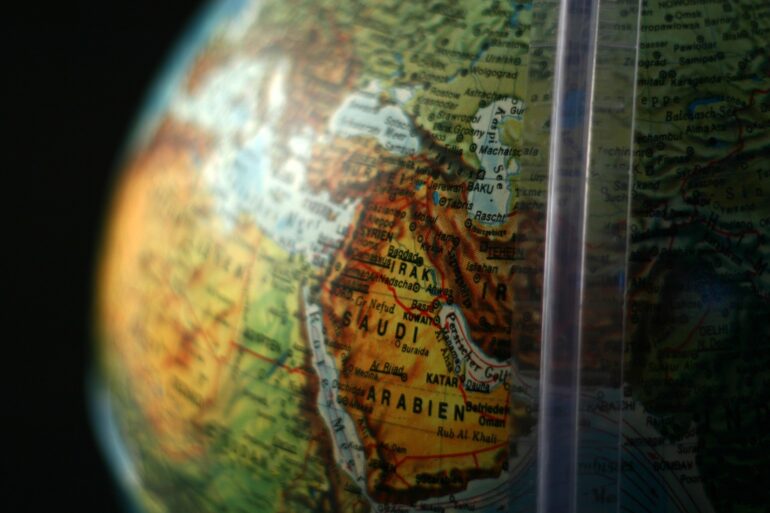TL;DR:
- Saudi Arabia aims to challenge the UAE’s tech hub dominance in the Middle East.
- At Davos, the Saudi delegation showcased initiatives aligned with Vision 2030.
- Neom, a key project, emphasizes innovation potential beyond tourism.
- The finance minister highlights diversification from oil into various sectors.
- Strategic partnerships and initiatives at King Abdullah University support AI leadership goal.
- Experts see Saudi Arabia’s success potential in AI due to abundant resources and regulatory flexibility.
- Saudi Arabia and the UAE look to emulate Singapore and Israel’s success in tech and innovation.
Main AI News:
In recent years, the United Arab Emirates (UAE) has established itself as the go-to tech hub in the Middle East, thanks to its favorable tax policies, flexible visa regulations, and attractive incentives for international businesses and professionals. However, Saudi Arabia is determined to step into the spotlight and attract talent and investments from its neighboring tech giant. This ambition was vividly on display at this year’s Davos Promenade.
The Saudi delegation made a significant impact on the city’s main street, showcasing various initiatives as part of the country’s Vision 2030 strategy for economic diversification. Among these initiatives were presentations dedicated to Neom, a groundbreaking urban development project in northwestern Saudi Arabia, and the AlUla project, which aims to transform the heritage city into a global tourist destination. Additionally, the Saudi crown prince’s Foundation, MiSK, and its youth ambassadors were featured prominently.
The Neom showcase, in particular, stood out as it highlighted the project’s potential not only as a luxury living and tourism destination but also as an innovation hub. A Neom spokesperson emphasized their commitment to educating the investment community about Neom’s prospects and readiness for business.
Saudi Arabia’s finance minister, Mohammed al-Jadaan, underscored the country’s economic transformation, noting that oil’s contribution to the GDP had decreased significantly, opening doors to diversification across various sectors, including tourism, technology, and logistics. Al-Jadaan also highlighted Saudi Arabia’s strategic relationships with the United States and China, aiming to bridge global gaps.
Neom is just one of several “giga” projects outlined in Crown Prince Mohammed bin Salman’s Vision 2030 plan, which focuses on massive infrastructure investments and attracting fintech talent to the region and beyond.
Ian Bremmer, President and Founder of Eurasia Group, a political risk consultancy, expressed his confidence in MBS’s efforts to drive entrepreneurship and diversify the Saudi economy. Bremmer praised the measures taken to combat corruption and improve education, particularly for women.
With the Saudi economy surpassing the $1 trillion mark, the kingdom is investing heavily in its tech hub aspirations. While much attention is given to the grand megacities being developed in the desert, experts in Davos emphasize that the primary objective is to attract talent to fuel AI-driven innovation.
The King Abdullah University of Science and Technology (KAUST) plays a crucial role in this mission, working strategically to support startups, establish a National AI Strategy, provide AI-powered government services, and drive advanced projects in oil and gas. KAUST’s dedication to Saudi Arabia’s goal of becoming a global AI leader by 2030 is evident through its partnerships and initiatives.
Experts believe that Saudi Arabia’s potential for success in the global AI race lies in its abundant resources, regulatory flexibility, and a young, educated population hungry for innovation. The kingdom is looking to countries like Singapore and Israel, which have successfully supported startups and driven technology and innovation without abundant natural resources.
Jack Hidary, CEO of SandboxAQ, notes that AI’s transformative impact extends far beyond mobile phones. With millions in need of upskilling, personalized AI-driven education and training hold the key to revolutionizing workforce development in Saudi Arabia and the UAE.
Conclusion:
Saudi Arabia’s determined efforts to position itself as a leading AI tech hub in the Middle East, as evidenced at Davos, signal significant potential for market expansion. With a focus on diversification, strategic partnerships, and a well-educated population, Saudi Arabia aims to rival its neighboring tech giants, potentially creating opportunities for international businesses and investors in the AI sector. This competition could lead to innovation-driven growth and collaboration, similar to the success stories of Singapore and Israel.

